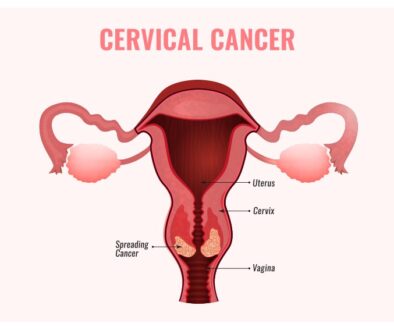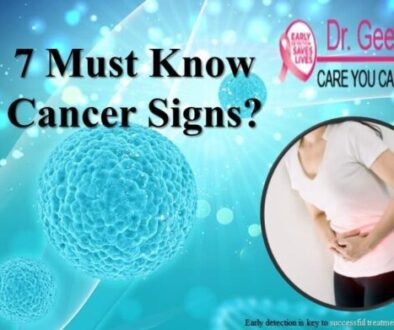20 Warning Signs of Cancer in Women
20 signs of cancer: Women’s bodies go through a lot, from menstrual periods to menopause. It’s also fine to feel different from time to time. However, any additional symptoms should be checked and evaluated by a specialist doctor. Some of the changes or symptoms could be cancer-related.
The following are some of the most common cancers in women:
- Breast Cancer
- Ovarian Cancer
- Endometrial (lining of the uterus)
- Cervical cancer
Please remember that many of the symptoms of cancer might also be caused by other health issues. And, for malignancies that affect both males and females, the symptoms are often the same. However, it’s critical to notify your doctor if you see any warning signals – such as the following:
20 signs of cancer in women
Lump in your breast
A lump in your breast does not necessarily indicate that you have breast cancer. However, if it remains for more than a couple of weeks with pain, swelling, abnormal discharge from the best, or changes in the skin and contour of your breast, report this to your female breast specialist doctor.
The other signs to keep an eye on include:
- Breasts that are swollen (with or without a lump)
- A lump in your armpit or a protrusion from your collarbone
- If you have a nipple discharge, it can be bloody or clear.
- Inward-pointing nipples
- Skin that resembles the peel of an orange.
- Pain in the breasts or nipples
- Nipple or breast skin that is red, scratchy, or thick
Vaginal or rectal bleeding
“Ladies often overlook vaginal or rectal bleeding,” says Soma Mandal, MD, a women’s health expert at Summit Medical Group in Berkeley Heights, NJ. “This can indicate a potentially dangerous condition such as uterine or colon cancer. These indications can be frightening, and females may be hesitant to confess that they require additional testing.”
Bloating
Bloating, discomfort, or strain that lasts for more than 2 weeks from the pubic bone down underneath the ribcage are all symptoms of ovarian cancer, according to Shiva Ghofrany, MD, an OB-GYN in Stamford, Connecticut.
Skin changes
Skin alterations, such as moles or blisters changing or enlarging, are frequently connected to skin cancer. Other types of cancer may be indicated by certain skin abnormalities.
White patches in the mouth, for example, may signify oral cancer. Tumors, such as breast cancer, can cause lumps or bumps beneath the skin.
Other skin changes caused by cancer include:
- Hyperpigmentation, or dark blotches
- Hair growth
- Jaundice
- Redness
Sores that don’t go away or recover and reappear are two examples of skin alterations caused by skin cancer.
Weight gain
“Silent indications of ovarian cancer include unintentional weight gain and a change in bowel habits,” explains Kameelah Phillips, MD, an OB-GYN in New York City. “Ovarian cancer symptoms can be difficult to detect. Females can readily disregard changes in bowel habits and weight gain by blaming them on menopause, aging, or a poor diet.”
Fatigue
“Regardless of how much sleep, relaxation, or coffee you get, if you feel overall weariness, it could indicate cancer,” explains Dr. Jill Stocker, DO, a physician in West Hollywood, California. You may have a lack of enthusiasm and find yourself dozing frequently throughout the day.
Pimple
“Skin malignancies on the head and neck can occasionally resemble a pimple or spot,” explains Jeffrey Fromowitz, MD, a dermatologist in Boca Raton, Florida.
Stomach, pelvic or back pain
Endometriosis, for example, is known to cause torso pain. It could also be discomfort from your period. However, persistent discomfort or pressure in your stomach, pelvis, or back might indicate a variety of cancers. Colorectal, ovarian, and endometrial cancers are among them. If you have a tumor on your spine or cancer that has migrated from another part of your body, you may experience backache. Upper abdominal pain that reaches your back and is accompanied by unexpected weight loss could be an indication of pancreatic cancer.
Unexpected weight loss
Maintaining a healthy weight can reduce your risk of cancer. However, if you lose 10 pounds or more without dieting or exercising, consult your doctor. You may lose weight as a result of cancer.
Hoarseness
“Hoarseness, commonly known as dysphonia,” explains Inna Husain, MD, department chief of laryngology at Rush University Medical Center, “may be an indication of vocal cord cancer.” “Dysphonia is frequently linked to laryngitis or voice usage, but it could also be an indication of malignancy.”
Loss of appetite
Tumors in or around your digestive tract can strain your belly and cause discomfort. You may find it difficult to eat because you are stuffed. Cancer can also send out hormones that cause your eating signals to be disrupted.
A strange type of headache
“Most of us suffer from headaches on a regular, weekly, or monthly basis. “However, even if it’s a little headache, it is worth being examined if you have a unique headache that you have never had before.” A brain tumor can cause headaches by increasing pressure in the brain or interfering with the absorption and distribution of cerebrospinal fluid.
Nausea and Vomiting
“Most of the time, nausea is a minor symptom of viral gastroenteritis or similar short-term disease,” adds Graber. “However, prolonged nausea and vomiting may be caused by a slow-growing brain mass, in which case a physician should be consulted.”
Continuous pain
“Females tend to put themselves last when it comes to their own medical requirements,” Mandal says. “Persistent discomfort might also be disregarded by women.”
Changes in digestion
Difficulties with consuming, such as difficulty swallowing, changes in appetite, or discomfort after eating, can all be symptoms of some malignancies. A person with stomach cancer may not have any signs at first, particularly if it is still in its early stages. However, indigestion, nausea, puking, and bloating are all indications of cancer. Swallowing difficulties have been associated with a variety of head and neck cancers, as well as esophageal cancer.
Bleeding after intimacy
“Bleeding after sexual activity can sometimes be a symptom of a more significant problem,” Phillips explains. It’s possible that it’s a sign that you have cervical cancer.
Cough
A persistent cough might be an indication of lung cancer. It is also possible that you have cancer in your larynx or thyroid gland if you’re constantly hoarse. Notify your doctor about these signs and symptoms. If you experience chest pain and are coughing up blood, seek medical attention right away.
Night sweats
Sweats at night are more severe than mild sweating or being overheated. You will usually be drenched in perspiration as a result of them. Night sweats, like the other symptoms described so far, can occur for a variety of issues unrelated to cancer. Night sweats, on the other hand, have been associated with the early stages of various diseases, including leukemia, lymphoma, and liver cancer.
Bowel changes
Colorectal cancer can be detected by changes in the bowel. This has an impact on your colon and rectum. Hemorrhoids, irritable bowels, and inflammatory bowel disease are all possibilities. Some colorectal cancer signs may be mistaken for premenstrual syndrome (PMS) or periods in females.
Red or white patch in the mouth
“A red or white patch in the mouth, palate, gums, inner cheek or lip that doesn’t go away could be an indication of oral cancer,” explains Sharona Dayan, MD, board-certified periodontist and director of Aurora Periodontontal Care in Beverly Hills, California. “If it lasts more than 3 weeks, make an appointment with your dentist or doctor.”
Bottom Line
Taking control of your health is crucial to surviving cancer. Ensure you get your annual checkups and follow your doctor’s recommendations for any tests. It is also vital to recognize the warning signs of cancer and take action immediately. In addition to 20 signs of cancer in women, you can learn more about the warning signs and symptoms of the most common gynecological cancers by browsing through the following links:
This article is very informative to all women – after reading it thoroughly, you will be able to distinguish “Breast Pain Due to Breast Cancer” and “Breast Pain Due to Other Causes” Read more – “BREAST PAIN – IS IT DUE TO BREAST CANCER”
Also Read – “Cancer Prevention – Is It Possible”




